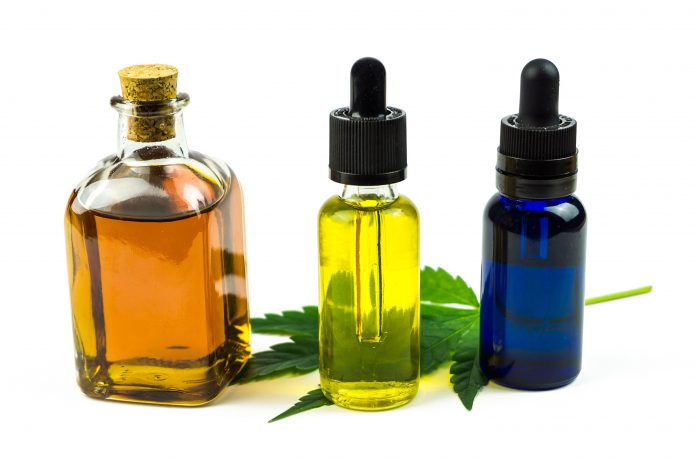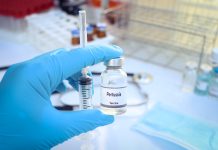Gregory Land, CEO at Canna CBD Limited, highlights the dangers of purchasing cannabidiol (CBD) from an unreputable source
Here’s the thing: Because cannabidiol (CBD) is not bound by any government regulations, beyond that of normal food supplement products, companies have a “free” license to claim whatever they want with these products. While there are some legitimate operations out there creating the best possible hemp-derived CBD oils, others are fly-by-night snake oil salesmen on Facebook cutting corners in the quest for the get rich quick scheme.
It seems everywhere we turn these days there is a big, flashing sign that reads “CBD Sold Here.” But instead of seeing these circus-style advertisements around legitimate pharmacies or health food stores dedicated to creating a healthier population, they are appearing in front of vape shops, convenience stores and even your local petrol station next to the vape displays.
CBD has caused a “green” rush within the UK, and it has collected an array of individuals who operate within a grey area, a large proportion of the original CBD sellers within the UK have come from the Peptide industry – which is also questionably legal. The UK has gone wild for this non-intoxicating hemp derivative. So much, in fact, they have failed to take into consideration that some of these products might be fake.
Not all CBD is the therapeutic heal-all you’ve been reading about for the past few years. Some of it is absolute rubbish, containing only trace amounts of the cannabinoid. Reports by the Centre for Medical Cannabis have found miss represented CBD oil sold in parts of the country (1).
So, yes, if you purchased CBD oil the last time you filled up your car with petrol whilst waiting for the vending machine to dispense a disappointing coffee you might of found yourself a victim.
However, this is an industry-wide problem, and not just one affecting the local marketplace. Research published November 2017 in the Journal of the American Medical Association (2) shows that around 40% of CBD products purchased online do not contain as much of the compound as printed on the labels.
About 26% included higher concentrations than they were supposed to, showing further inaccuracy. Some of these products even tested positive for enough THC (the stoner compound) to cause a person to fail a drug test. Reports of CBD users testing positive for marijuana have become more prevalent as of late because of these kinds of manufacturing discrepancies.
But it’s not like you haven’t been warned some CBD products might be a little shady, it’s somewhat careless to presume that a pop-up seller on Facebook or Instagram may be selling a legitimate product. The U.S. Food and Drug Administration (FDA) has spent nearly five years urging consumers to “beware purchasing and using any such products.” But apparently, all anyone wants to hear in their search for a miracle cure is the hype.
Nevertheless, in laboratory tests, the agency found many of these products do “not contain the levels of CBD they claimed to contain.” This means a lot of consumers who have bought into the CBD craze are out there getting scammed.

So, where should you make your next CBD purchase?
It would be wrong of me in this instance to say “well… from us” but the point remains that consumers should purchase directly from manufacturers and brand owners websites, and not affiliate agents or “third party” retailers online. It is imperative that consumers learn the basics of CBD if they do not want to be scammed or sold an inferior product as it could be hazardous to health and wellbeing.
Unfortunately, due to the young age of the CBD oil industry, there aren’t any regulations that control the manufacturing process. This means that different CBD brands may have different extraction methods in order to process CBD oil from hemp.
Some companies, especially those who sell their products at a ridiculously low price, may use cheap methods when extracting CBD oil. This requires toxic solvents that are dangerous to our health such as propane, hexane, pentane and butane. Two of these are commonly used in gas stoves and ranges, such as propane and butane, and all of them are hydrocarbon gases found in petroleum.
Like any manufactured product, one of the best ways to ensure quality is to use high-quality materials. This is especially important in CBD oil because of the hemp plant’s characteristic as a “hyperaccumulator.” This means that the hemp plant easily absorbs anything that is present in the ground that it was cultivated and farmed. If a hemp plant grew on rich soil, the resulting plant will be of high quality that can produce CBD oil in the same high-quality as well. Being a hyperaccumulator also has drawbacks: If a hemp plant that is used in production of CBD oil was cultivated in a land that is rich in heavy metals such as mercury and lead, the resulting oils will also reflect the amount of heavy metals absorbed by the plant, making it unsafe for humans to consume.
Sadly, some manufacturers would choose to purchase low-quality hemp to process as CBD oil, and such hemp may be polluted with heavy metals. These manufacturers only have profit in mind and don’t care about the possible consequence of their products. This is one reason why CBD oil risks getting a negative reputation.
Source:
(2) https://jamanetwork.com/journals/jama/fullarticle/2661569
Please note: This is a commercial profile











